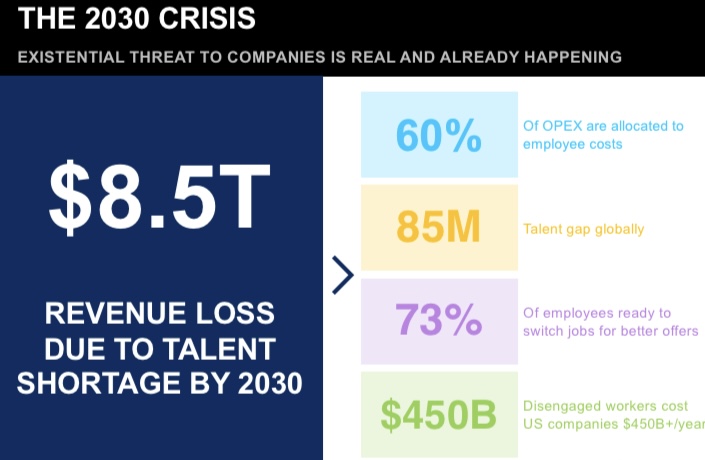This content is brought to you by Opus Talent Analytics.
Extraordinary solutions are hiding in plain sight. Every performance review, payroll stub, and employee survey is thick with powerful data. Increasingly, companies are using AI-backed technology to turn these mundane data points into highly profitable insights, to build stronger companies and more satisfied employees. Companies that ignore the trend risk doing so at their peril.
The world’s best firms have known this for a while. Credit Suisse famously devised an algorithm to predict who would quit to retain top talent. Companies such as Xerox, Southwest Airlines, and Proctor & Gamble all use employee feedback to devise career development programs, reducing costly turnover. In each case, key insights came from the company’s records.
Smart use of data is no longer a luxury. Today, it’s a mark of companies that can read the future. The nature of work is rapidly changing – artificial intelligence, automation, and remote work have forged a “future of work” with vastly different expectations and norms. Employees now demand more meaning, flexibility, and personal development from their employers—otherwise, they quit. New tools are needed to retain talent.
About 60% of business spending goes to payroll. Hiring and skilling are the two largest cost buckets. There’s sound business logic to this: if employees are not kept skilled and happy, customers take notice. Sales go down. And when employees quit, it puts a hole in the balance sheet: firms fritter away months of salary just headhunting and onboarding recruits. Poor retention can swing a profit to a loss.
The future of work has set off a global war for talent. As technology rapidly improves, jobs are becoming more complex. Unfortunately, the skills required to do them aren’t keeping up. Top consultancy firms, like McKinsey and others, have identified an inevitable and costly skill gap headed for the workforce. As a result, companies are stepping up training and capacity-building budgets.
These dual challenges – retention and upskilling – have put HR data analytics at the center of corporate strategy. Leaps in technology have elevated HR from a cost center to a driver of business performance. It’s no surprise then that companies are investing more than ever in HR tech. Fortune Business Insights projects HR tech spending to reach $35 billion in 2028 from $24 billion in 2021.
Opus Talent Analytics offers a particularly powerful toolset. The company’s predictive analytics leverages data to tell a company who and when to re-skill. It spots untapped talents in the workforce, and it motivates employees to improve their skills by recognizing their improvement. It simplifies job matching and creates a workplace conducive to creativity, growth, and collaboration. Its AI-powered technology and unique, built-in libraries make it incredibly easy to turn the dense fog of data into streamlined, high-impact decisions.
Opus’ suite of products is ideal for companies of all sizes. Small businesses can start their data journey with our SaaS product. Middle and large-size enterprises will benefit immensely from our talent intelligence, skills insights, and organizational KPI capabilities.
Opus believes that better people drive better businesses. In the future of work, people data analytics are essential for both.

Image provided by Opus Talent Analytics







